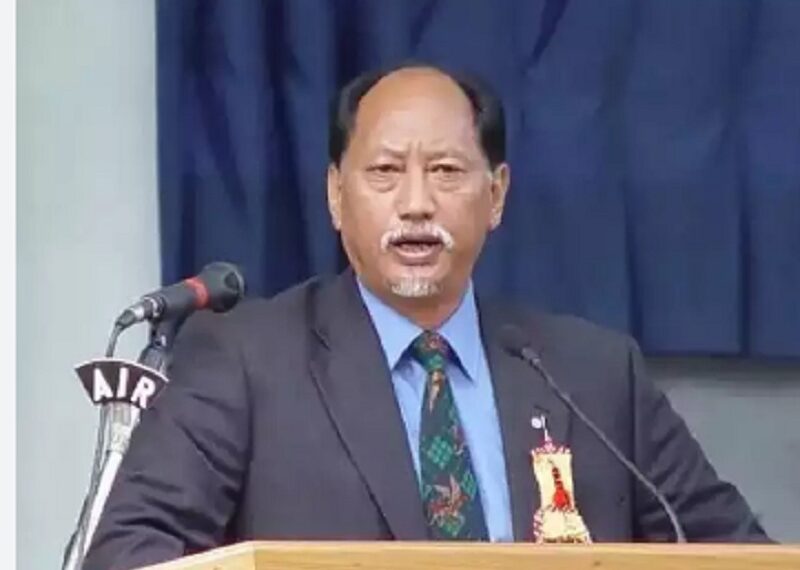Kohima: With the onset of the monsoon approaching, Nagaland Chief Minister Neiphiu Rio on Tuesday chaired a high-level review meeting at the Civil Secretariat, directing officials to ensure the availability of essential commodities in all districts and step up readiness for potential weather-related disruptions.
Emphasizing proactive measures, Rio instructed departments to monitor fair price shops closely and respond promptly to any reports of shortages.
He also directed the Public Works Department (PWD) to strictly enforce weight restrictions on heavy vehicles to protect road infrastructure during the rainy season.
To maintain uninterrupted traffic flow, Rio called on the police and district administrations to deploy teams for regular road inspections and immediate reporting of blockages or damages.
Chief Secretary J Alam was asked to convene a video conference with all Deputy Commissioners to assess district-wise preparedness, particularly regarding supply chains and logistics for essential goods.
Minister for Roads and Bridges G Kaito Aye urged the National Highways & Infrastructure Development Corporation Ltd (NHIDCL) to take greater responsibility for monitoring and repairing vulnerable stretches of road.
He also recommended the earmarking of emergency funds by the Disaster Management Department to be readily accessible during crises.
Aye further called on the Mechanical Department to update and maintain records of available machinery to ensure swift deployment during emergencies.
Public Health Engineering Minister Jacob Zhimomi highlighted the challenges posed by Nagaland’s moisture-heavy soil, underscoring the need for strict adherence to construction protocols and mandatory soil testing.
ALSO READ: Bangladesh’s DGFI-backed portal proposes ‘encirclement of India’s northeast’
He also urged NHIDCL to ensure contractors comply with guidelines and clear debris from completed projects to enhance road safety and longevity.
In a presentation titled “Monsoon 2025 Forecasting for Nagaland,” Joint CEO of the Nagaland State Disaster Management Authority (NSDMA) Johnny Ruangmei warned of erratic and uneven rainfall patterns this year, which could adversely impact agriculture and rural livelihoods.
Ruangmei advocated for a proactive disaster risk reduction strategy, grounded in data-driven planning, resilient infrastructure development, and active community participation.















